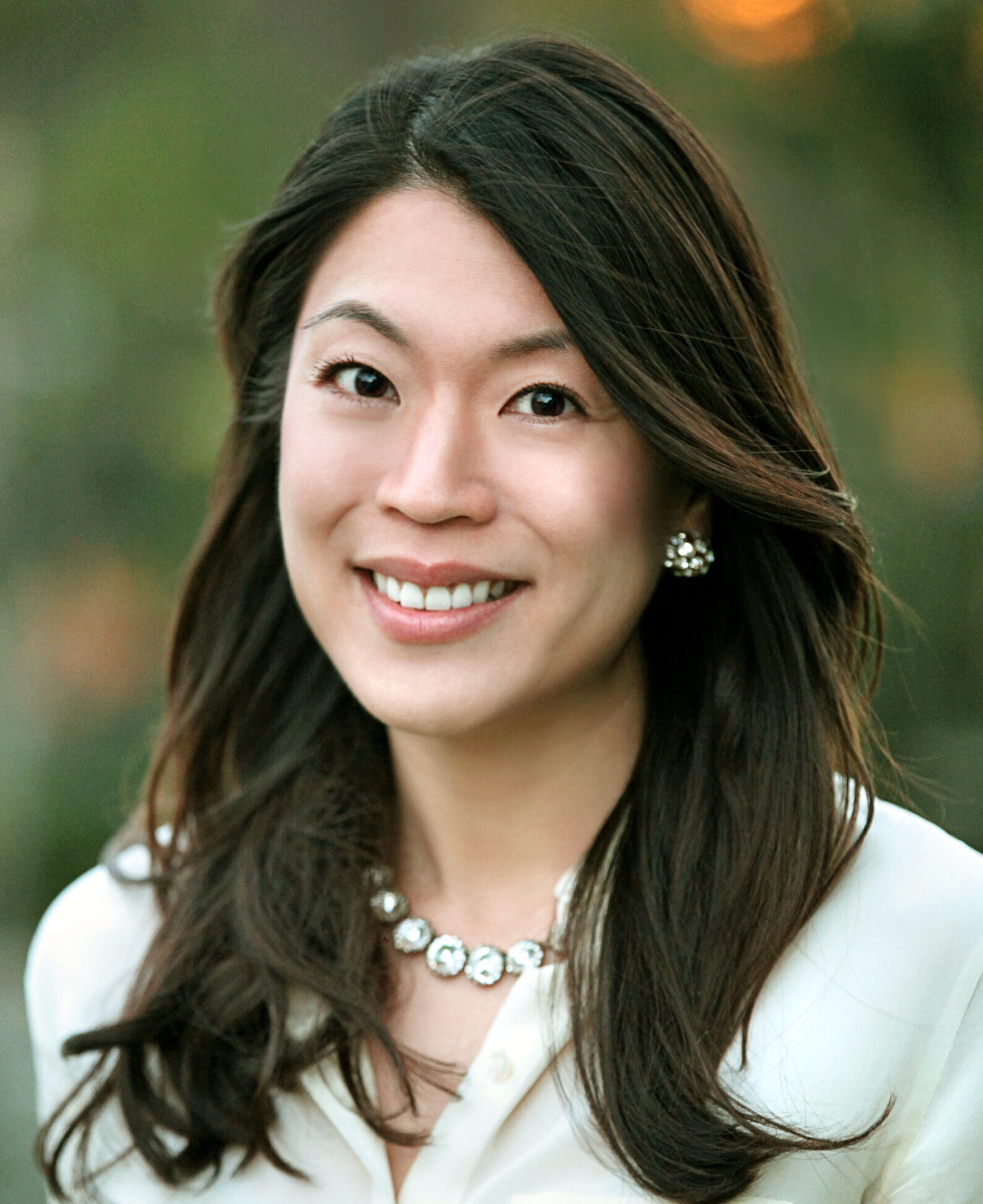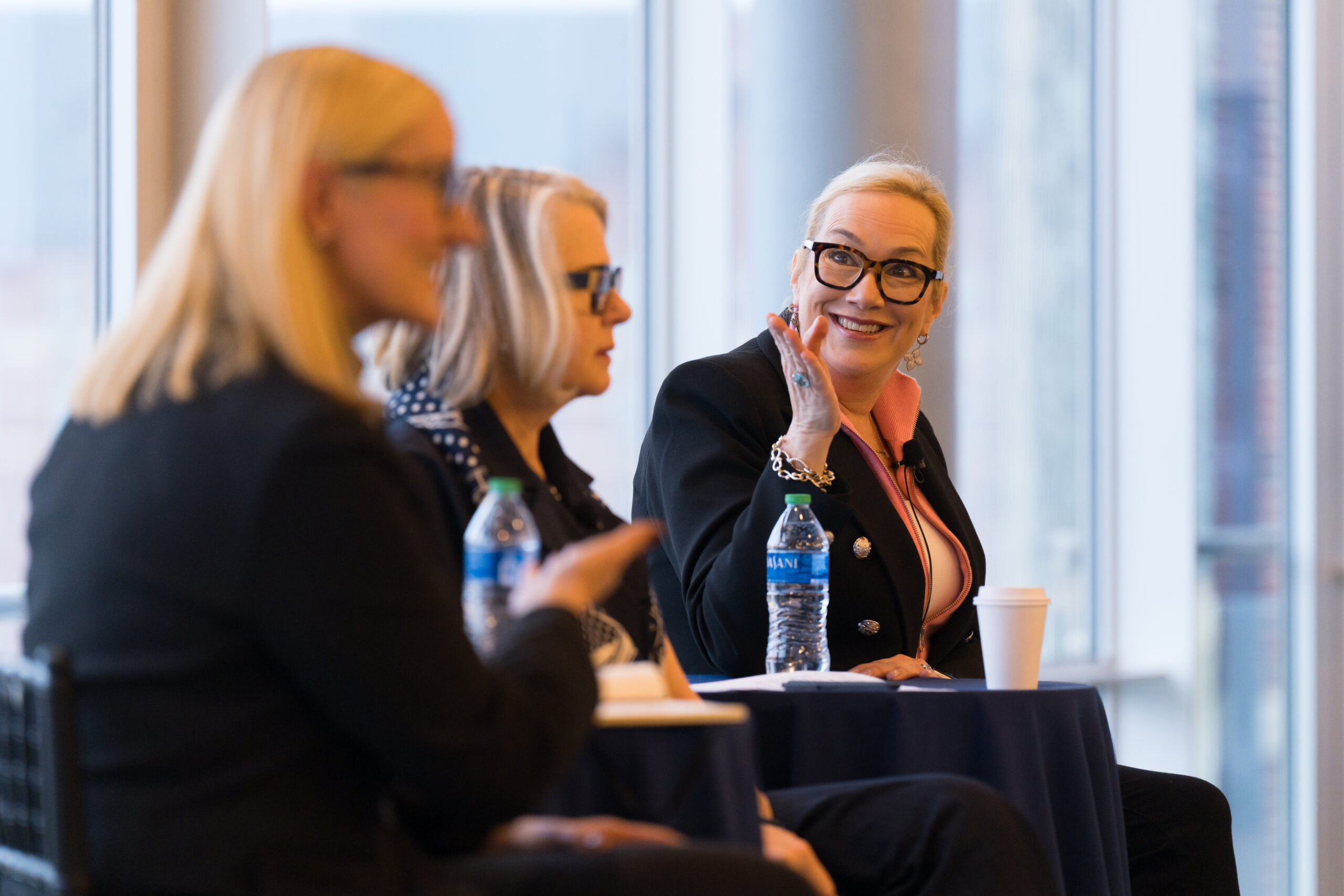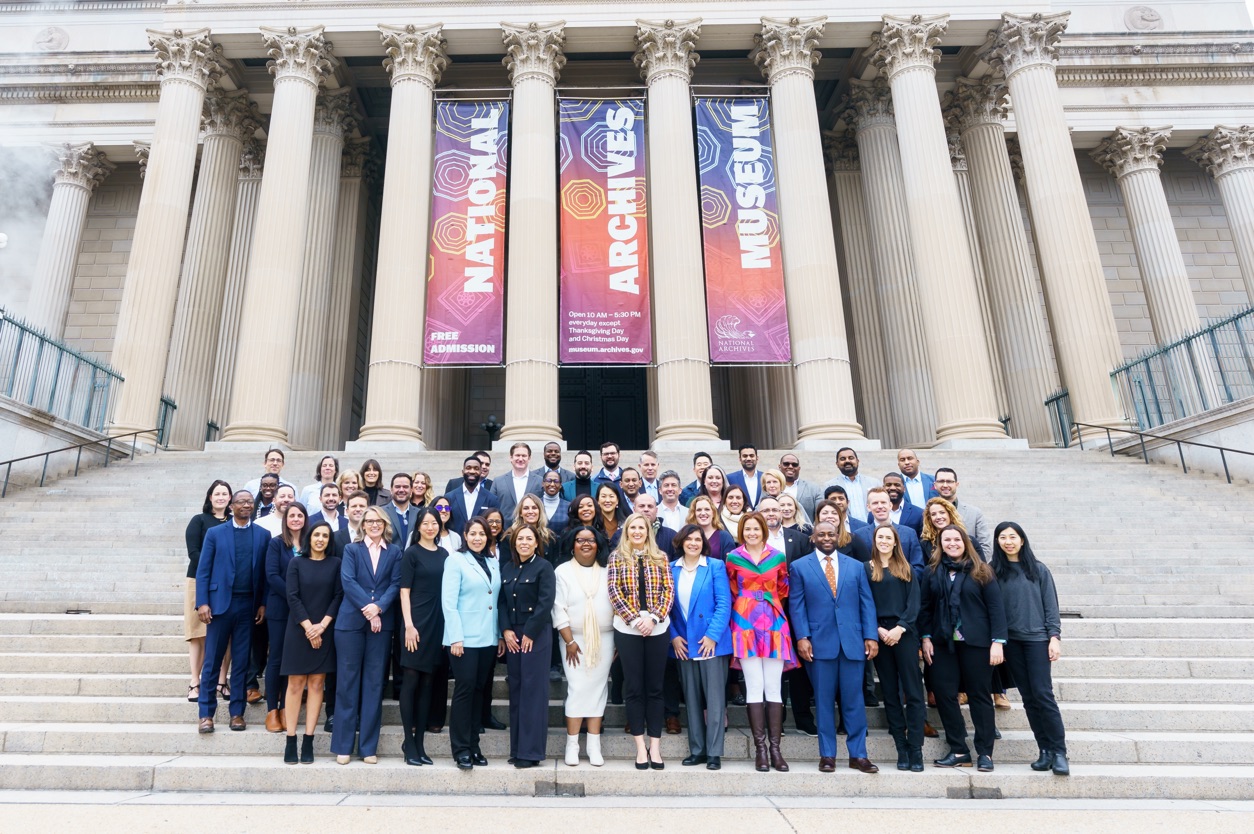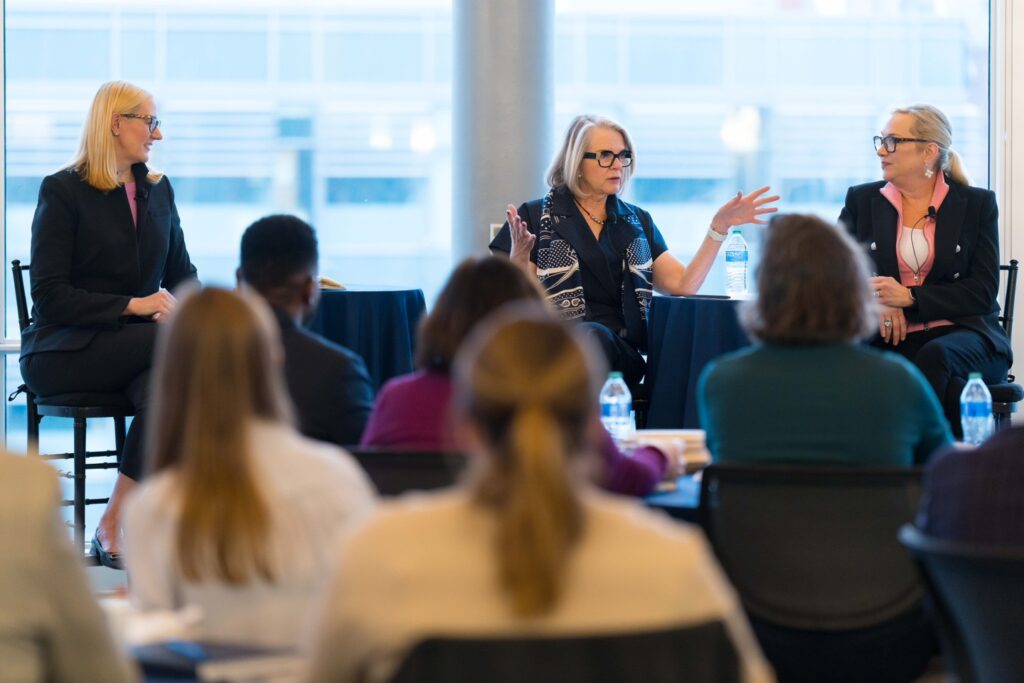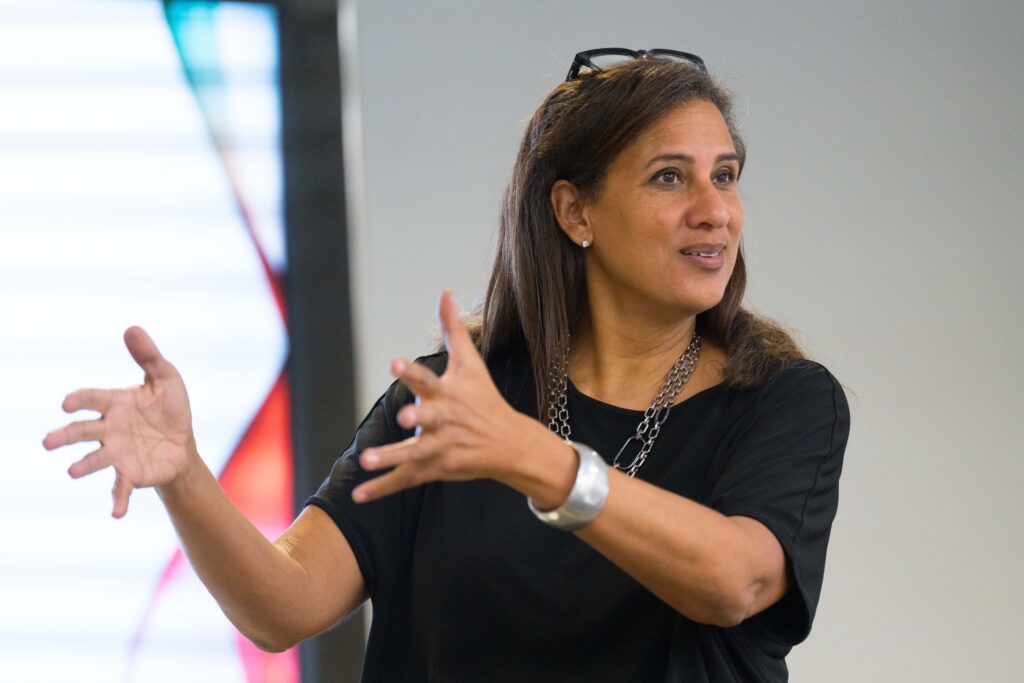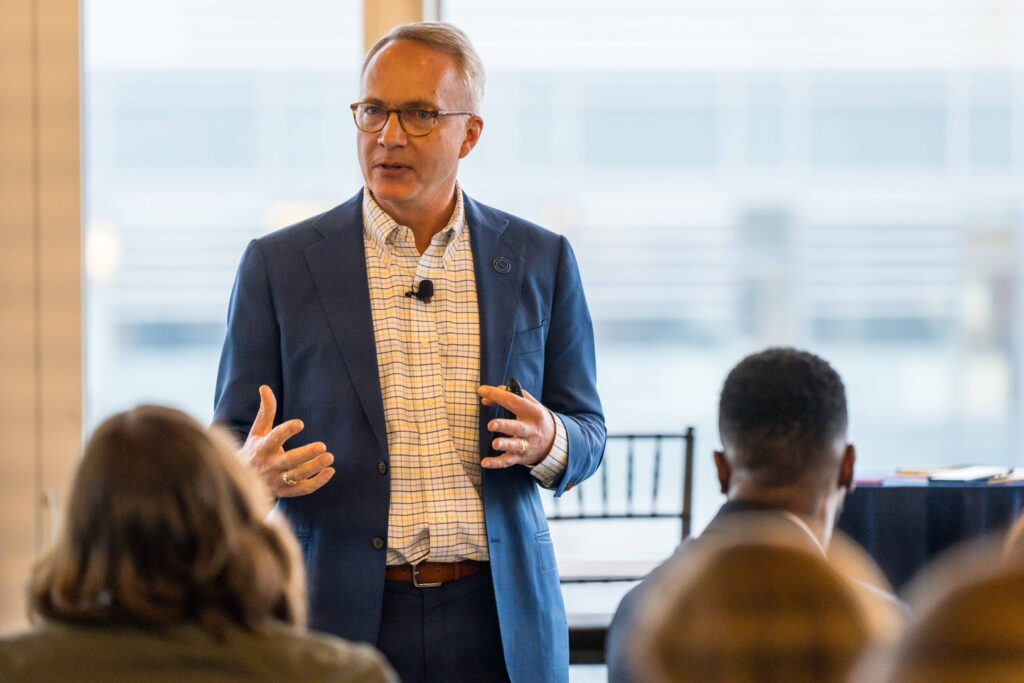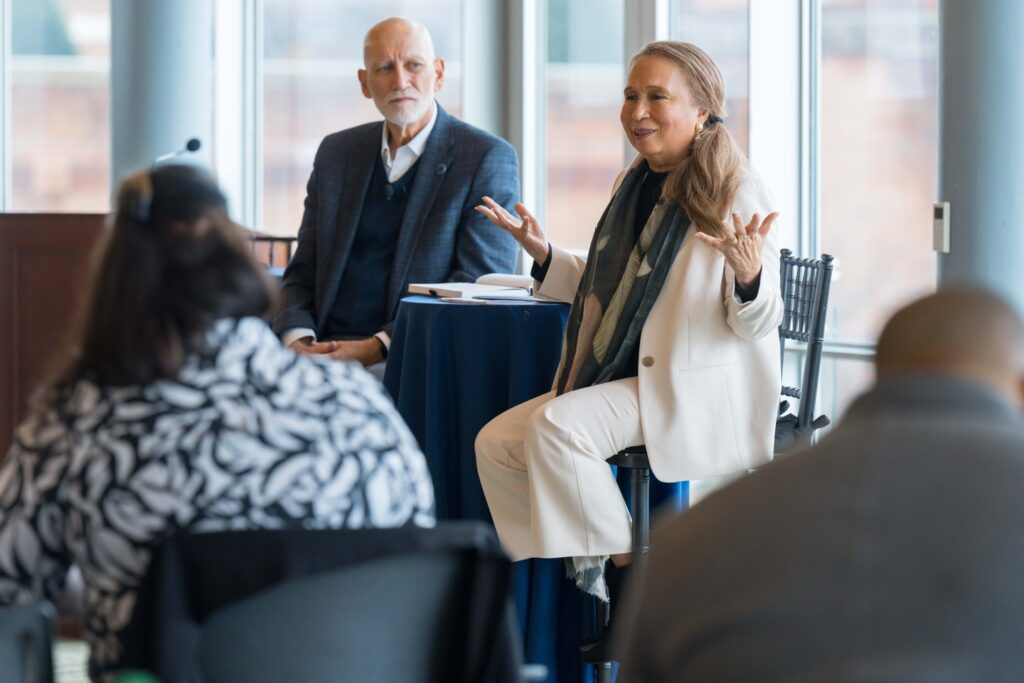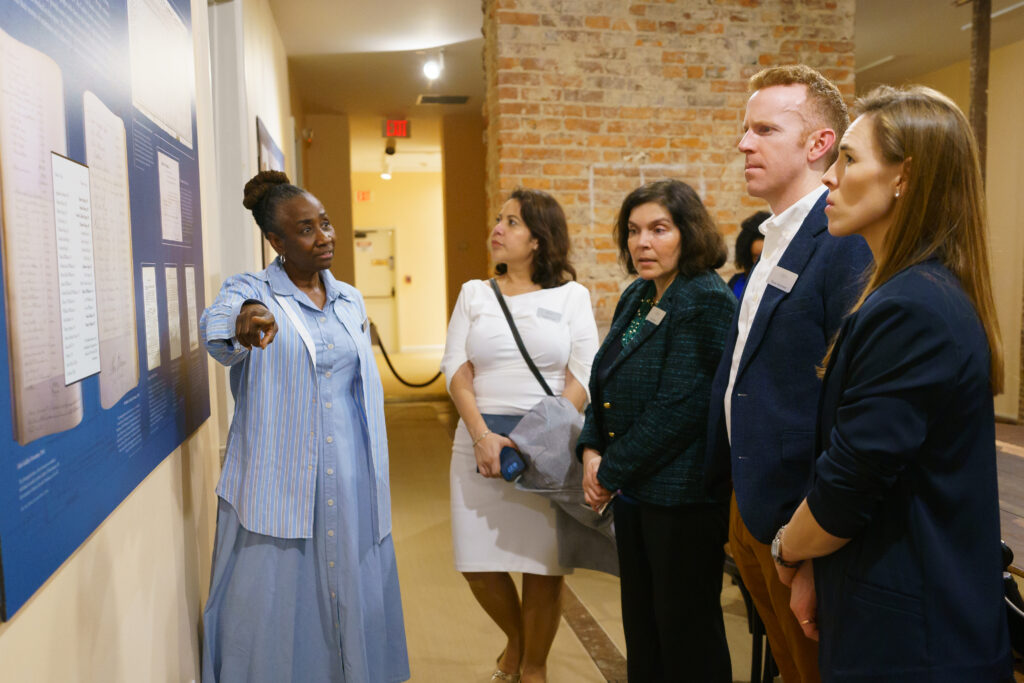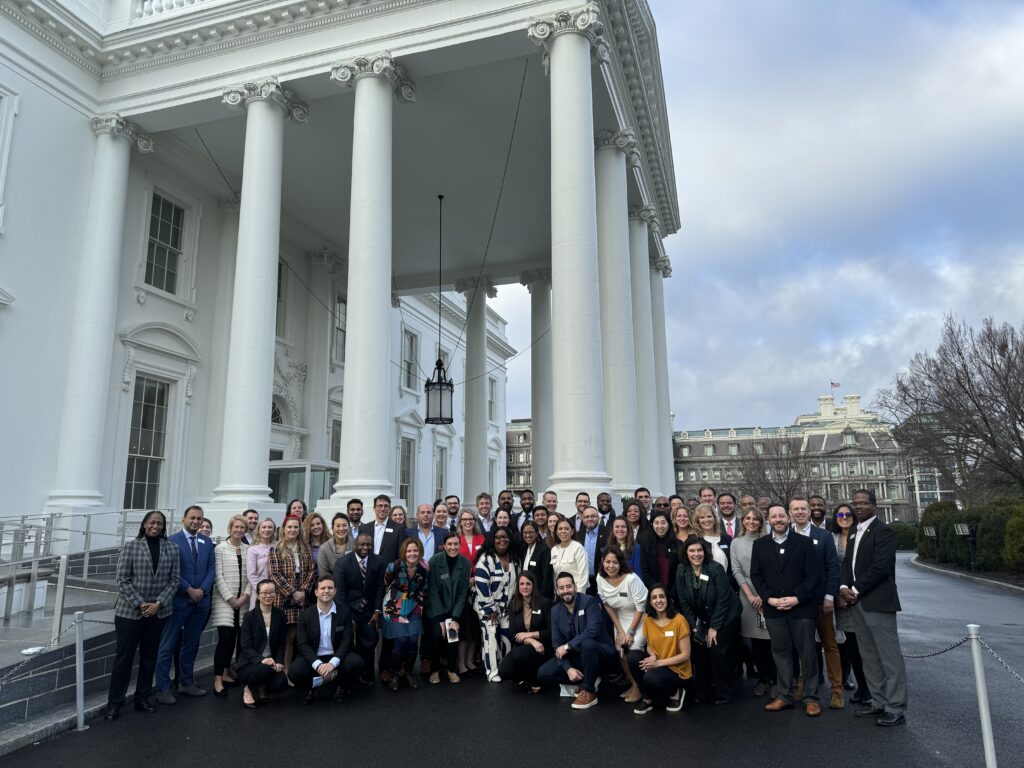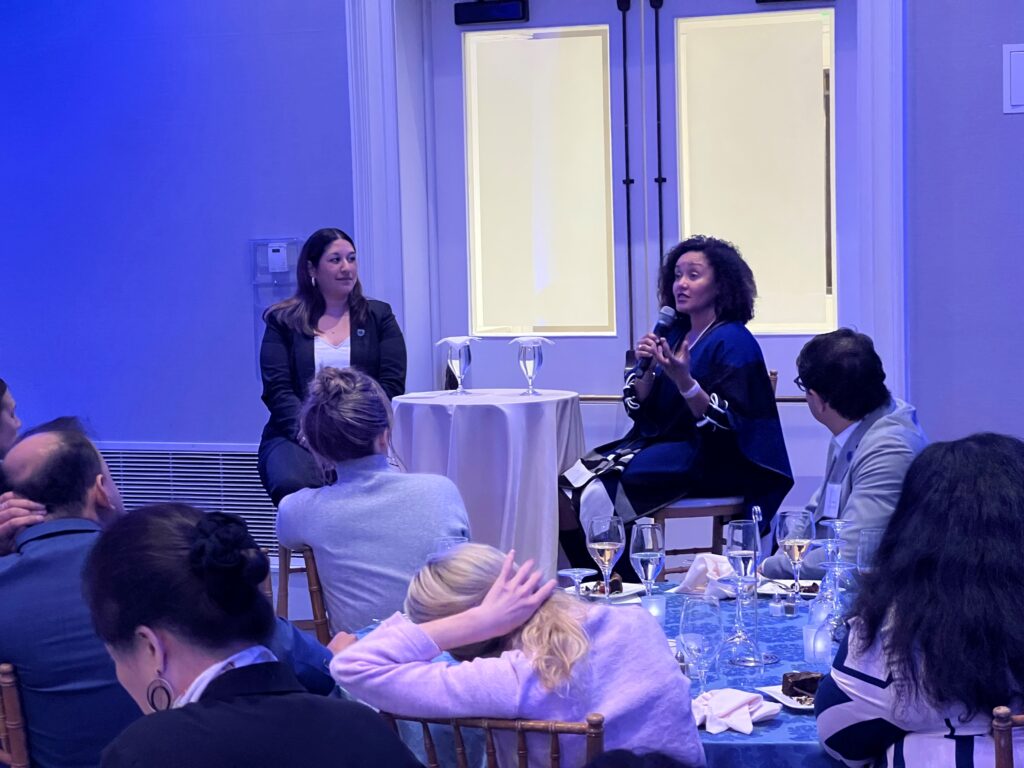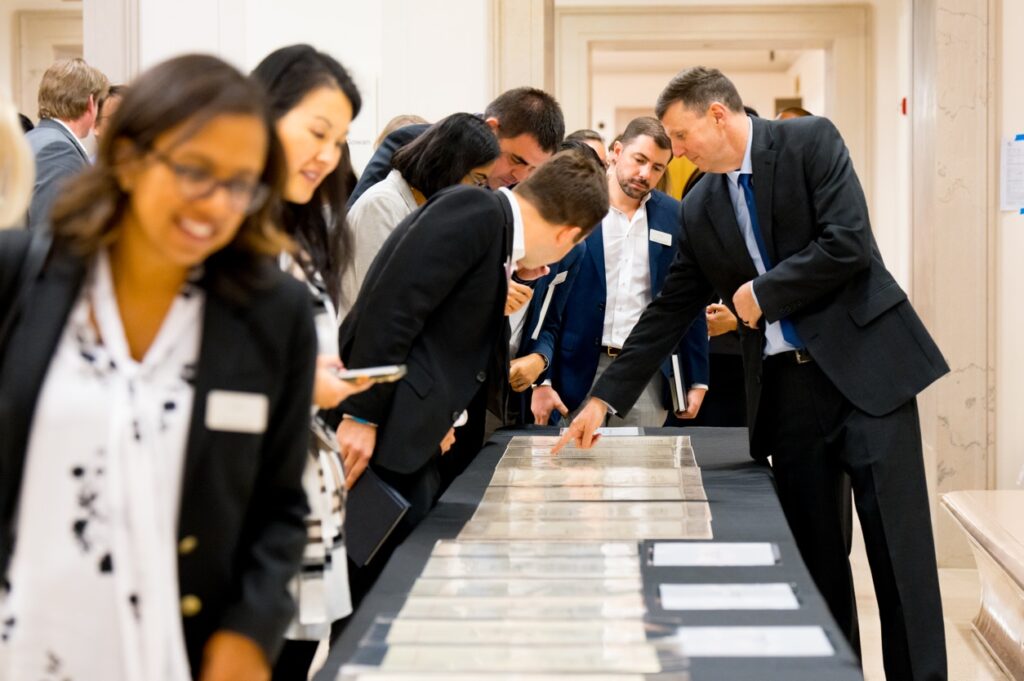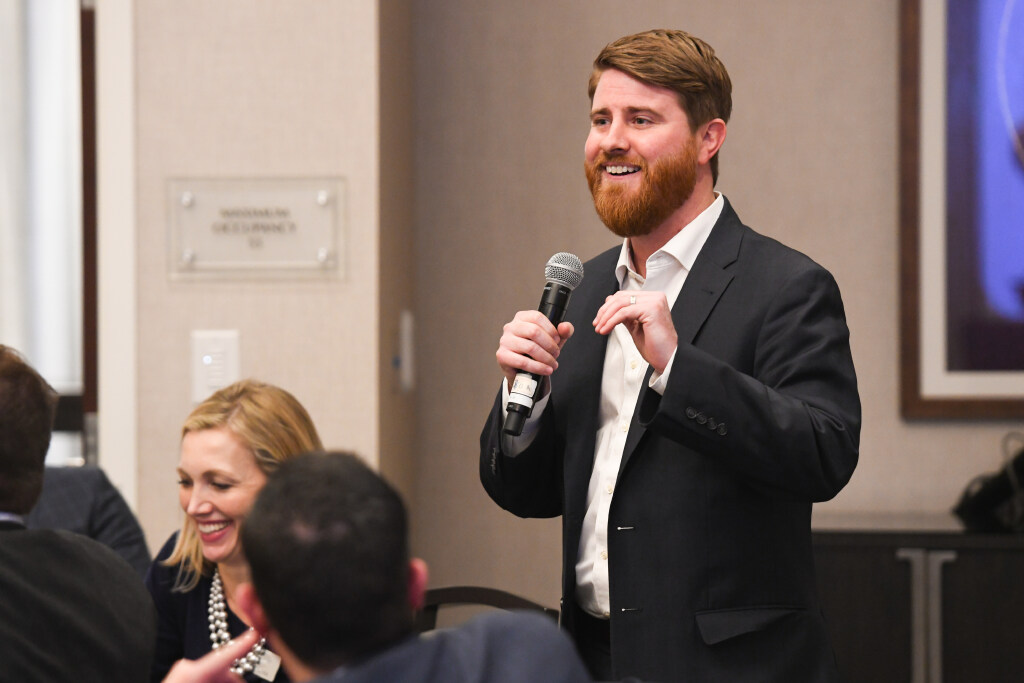Yoon Choi, CEO of CollegeSpring and 2020 Presidential Leadership Scholar, discusses the importance of standardized testing in helping students build a foundation for future success and how we can begin to address inequalities in our education system.
Please tell us a little bit about yourself and your personal leadership project.
Education has been the central theme of my life.
I’m the daughter of Korean parents who immigrated to the U.S., buoyed by their beliefs that America was the land of opportunity and the place you went for the highest caliber education. I was born in New York, raised mostly in Yonkers. My father completed his studies when I was 13, and my parents gave me the choice to stay in the U.S. or return with my family to Korea. I chose to stay and pursue my education, and I was fortunate to receive a scholarship to attend a private school in Connecticut while living with my aunt. My new home was only 62 miles away, but the environment was worlds apart. My magnet public school in Yonkers, where I had been a top student, had not prepared me academically or culturally to succeed in my new school. I ultimately did fine enough to get by, but I learned firsthand that the preparation, role models, and enrichment that give students an edge happen largely outside of school. If school is the bare minimum most kids get, how can we strengthen schools so that all kids, not just a select few, can succeed?
Coming from a family of educators, I decided I’d become one myself. Anthropology was particularly appealing since questions about culture, identity, and social change had always fascinated me. I was on my way to being a professor when, to make ends meet, I started writing grants for a nonprofit that operated a Reggio Emilia charter school on Skid Row in LA, an oasis for children and families living in poverty. I realized then that I wanted to be proximate to the solutions I was seeing. Thus began my 15-year career working in education nonprofits to serve students from underrepresented groups during critical inflection points in their lives.
In 2017, I became CEO of CollegeSpring, the only national nonprofit working to embed standardized test preparation for underrepresented students into the school day. I was not hired based on the merits of my own SAT score – in fact, my sheer dismissal and personal discomfort with these tests is what drives my desire to fully inform others about the role they play in potentially changing life trajectories. When I first applied to the Presidential Leadership Scholars program, we were serving 5,000 students across California and New York. My personal leadership project was focused on expanding our footprint in places like Texas to develop more proof points for our model in order to further scale our work.
Please give us an update on what you have been working on since completing the Presidential Leadership Scholars program.
Since I completed the program, CollegeSpring now serves 12,000 students, expanding from two states to eight, and from one school district to 18. I was part of the 2020 Presidential Leadership Scholars cohort, when the pandemic abruptly interrupted life and education as we knew it. CollegeSpring faced an existential crisis from our inability to deliver our in-school program, the cancelation of testing dates, and the rise of test optional policies. Not only did we survive, we grew 140% by creating a virtual program in record time and forging larger partnerships with other national nonprofits and districts in Detroit and Southeast Michigan. From there, we grew to Texas – in large part due to introductions made by the Bush Center and other PLS alums – and built new programs beyond the SAT, like the ACT and the Texas Assessment Initiative Assessment 2.0, which align with state and educator goals.
In the most recent school year, the number of CollegeSpring students attaining the math college readiness benchmark doubled, while those attaining the English and reading benchmark nearly tripled. At the end of our program, 80% of students feel more motivated, prepared and confident to take the test – skills that carry them far beyond college admissions. We’re proud of our growth and impact and are working to systemically embed our program into school systems across the country, including expanding into rural communities and in the Southwest.
On a personal note, I now have a 1.5 year old daughter, who we hope will run for president in 2070.
Which lessons learned during the Presidential Leadership Scholars program have stayed with you the most, and how have you put those lessons into action?
There are two PLS lessons that deeply impacted my outlook on social change and community.
The first was that time in Little Rock when after hearing President Clinton speak, we were ushered into the next room for our handshake and photo opportunity. Our directions were clear – shake hands, smile for the camera, and keep it moving. As I approached my turn, I could hear him exchanging pleasantries with my classmates, asking where they were from, sharing that he, too, had been there or knew so-and-so. Before I knew it, I was walking toward him. As expected, he asked where I lived, and I responded, “the Bay Area.” But instead of commenting on the beauty of the Golden Gate Bridge, he looked me in the eyes and asked, “Yoon, how would you solve San Francisco’s housing crisis?”
My first lesson: It is possible to pretend you’re not having a heart attack. As I said, education, not housing, has been my theme. The bigger lesson is what I now see as the president’s invitation to us all as leaders to embrace a much broader calling and look beyond the immediate issues we’re tackling and the ZIP codes we live in. Our work is interconnected, and solving big problems requires someone else’s ‘issue’ becoming our own.
The second lesson, which I’m constantly reminded about: the power of the PLS network. This wonderful program taught me that it is indeed possible for 60 one-time strangers – and the 60 before and after – to show up for one another, both personally and professionally. CollegeSpring would not be where it is today had PLS friends not introduced us to superintendents, philanthropists, and backbone organizations. They have modeled the type of camaraderie and support that I try to pay forward.
You recently wrote an op-ed for The Hechinger Report on how standardized tests can be great predictors of college success. Why is testing important in helping our students build a foundation for future success?
I wrote the op-ed because I believe there is room for nuance in the polarized and limited debate around standardized tests. I wanted to debunk some prevailing myths and highlight important data about the role of standardized tests – specifically the SAT and ACT – in education and access. The prevailing myth is that standardized tests hurt, rather than help, underrepresented students. While the score disparity between students from underrepresented minority groups and their counterparts is undeniable, the tests didn’t cause those gaps – they simply mirror what’s reflected at every level of society. The latest research shows that test scores are predictors of college success and beyond. Knowing the fundamentals in math and English help you in life.
Two prominent schools reversed their test optional policies earlier this month. Dartmouth recently found that had those lower-income students submitted their scores, they would have been admitted. Yale found that for students attending high schools with fewer resources, applications without scores can leave admissions officers with less evidence of their readiness. It turns out an option can also be a false choice, and not only is the system unchanged, the gaps are widening. We need to ask why millions of students keep taking them and why those who do are accepted at higher rates in test-optional schools.
Aside from what the colleges are doing, what’s often left out of the conversation is that tens of thousands of students must take tests as a graduation requirement, district and teacher accountability are based on these tests, and they are the key to unlocking merit aid and required for certain majors. Applauding policies happening in one corner of the sector without understanding the system as a whole has the unintended consequence of misinforming and lowering the bar for one group of students, rather than having the same standards, expectations, and opportunities for all.
What are some of the ways we can address inequalities in our education system, and how can we better prepare all students for standardized testing?
The first thing to realize is there are no silver bullets, and a one-size-fits-all approach doesn’t work. In order to address inequalities in our education system, we need a lot of solutions and actors – educators, parents, advocates, practitioners, funders – doing different things at all levels. We need to support one another because too often we turn our rage inward and impose our world views on students instead of centering them first.
Specific to testing, it’s not just about helping students get a high score; the act of preparing them builds academic knowledge and confidence for students, which every kid deserves. CollegeSpring trains math and English teachers to seamlessly weave our curriculum, materials, and practice into the school day – from freshman through senior year. If you’re a Title I student, you’re receiving the knowledge, support, and practice that higher-income students regularly receive via private tutors or outside classes as early as middle school. If you’re a teacher, you’re getting the training, coaching, and data analysis to guide your instruction. If you’re a district, you have the information you need to make targeted, individualized interventions. Our goal is to infuse a culture of academic rigor and readiness in high school and beyond.
Ultimately, we approach our work with the attitude that tests are just one part of the system. They should not be the end-all-be-all of anything, but simply another way for students to demonstrate their potential. CollegeSpring’s priority is to ensure underrepresented students have the edge, are competitive, and have multiple choices when they graduate high school.
